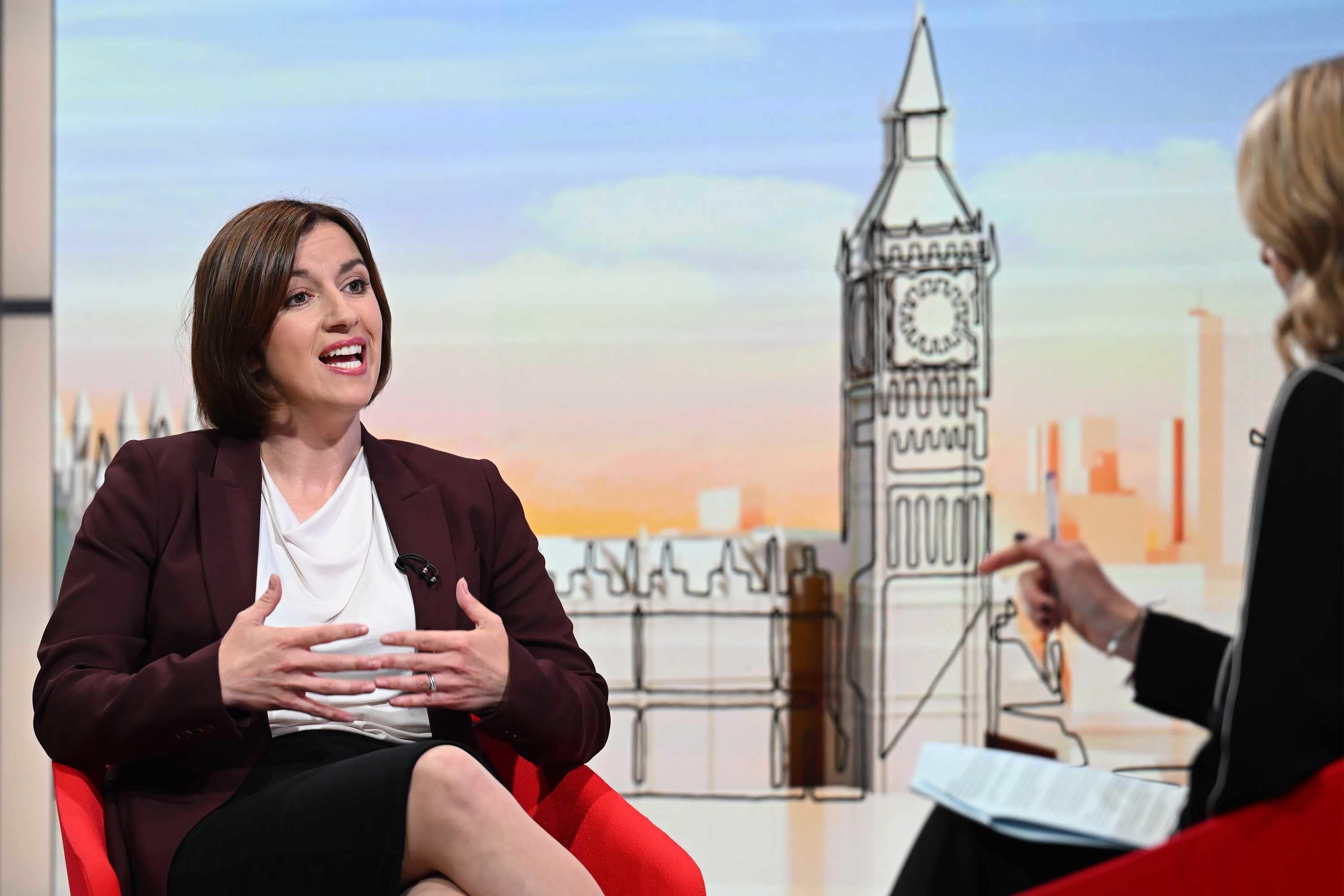Increasing truancy fines would not help school absence rates, Phillipson says
Shadow education secretary Bridget Phillipson said parents have ‘rightly’ raised concerns about how fines are applied.

Your support helps us to tell the story
From reproductive rights to climate change to Big Tech, The Independent is on the ground when the story is developing. Whether it's investigating the financials of Elon Musk's pro-Trump PAC or producing our latest documentary, 'The A Word', which shines a light on the American women fighting for reproductive rights, we know how important it is to parse out the facts from the messaging.
At such a critical moment in US history, we need reporters on the ground. Your donation allows us to keep sending journalists to speak to both sides of the story.
The Independent is trusted by Americans across the entire political spectrum. And unlike many other quality news outlets, we choose not to lock Americans out of our reporting and analysis with paywalls. We believe quality journalism should be available to everyone, paid for by those who can afford it.
Your support makes all the difference.Labour would not increase truancy fines to tackle school absence rates, the shadow education secretary has suggested.
Bridget Phillipson said she believes “lecturing people” without offering support would not help improve attendance.
Appearing on the BBC’s Sunday With Laura Kuenssberg programme, she said: “I’m not convinced that increasing fines is the answer and I think you do actually see across the country real variation in how those fines are applied. And parents, I think rightly, raised concerns about that.”
Some 22.3% pupils were “persistently absent” – meaning they missed at least 10% of their school sessions – in the 2022/23 academic year, Government figures show.
Just lecturing people without supporting them I've never found is an effective means of making change happen
This is significantly higher than the pre-pandemic rate of 10.9% in 2018/19, though a slight decrease from 22.5% in 2021/22.
Truancy fines formed part of the education policy of former Labour prime minister Sir Tony Blair, whose rhetoric has previously been echoed by current leader Sir Keir Starmer.
Sir Keir has said his key mission is “growth, growth, growth” – channelling the former leader’s “education, education, education” mantra – and has mirrored some aspects of New Labour’s “tough-on-crime, tough-on-the-causes-of crime” approach to law and order.
But Ms Phillipson on Sunday refused to say parents should be “tougher” in getting children out of the door.
“I don’t think it’s helpful to talk in that kind of language,” she told the show.
“Just lecturing people without supporting them I’ve never found is an effective means of making change happen.”
The public finances are in a terrible state. The next Labour government, if we form a government, will face a really tall order, but I am confident that we will put education right back at the heart of the ambition that we have for Britain
Elsewhere, the party refused to commit to spending more on a school-rebuilding programme amid a crisis over crumbly concrete that has forced classrooms to shut days before the new term.
Ms Phillipson stuck to the message that Labour will inherit public finances in a “terrible state” and needs to prioritise fiscal responsibility if it wins the next election.
The party has accused the Government of being too slow to address the potential safety risks of reinforced autoclaved aerated concrete (Raac) in public buildings.
“We had a plan. They scrapped it. Had they pressed ahead we wouldn’t be having this conversation. That’s the reality,” she said.
Asked why she would not commit to spending for rebuilding schools, she said: “Because we face a really difficult situation around the economy.”
She added: “The public finances are in a terrible state. The next Labour government, if we form a government, will face a really tall order, but I am confident that we will put education right back at the heart of the ambition that we have for Britain.”